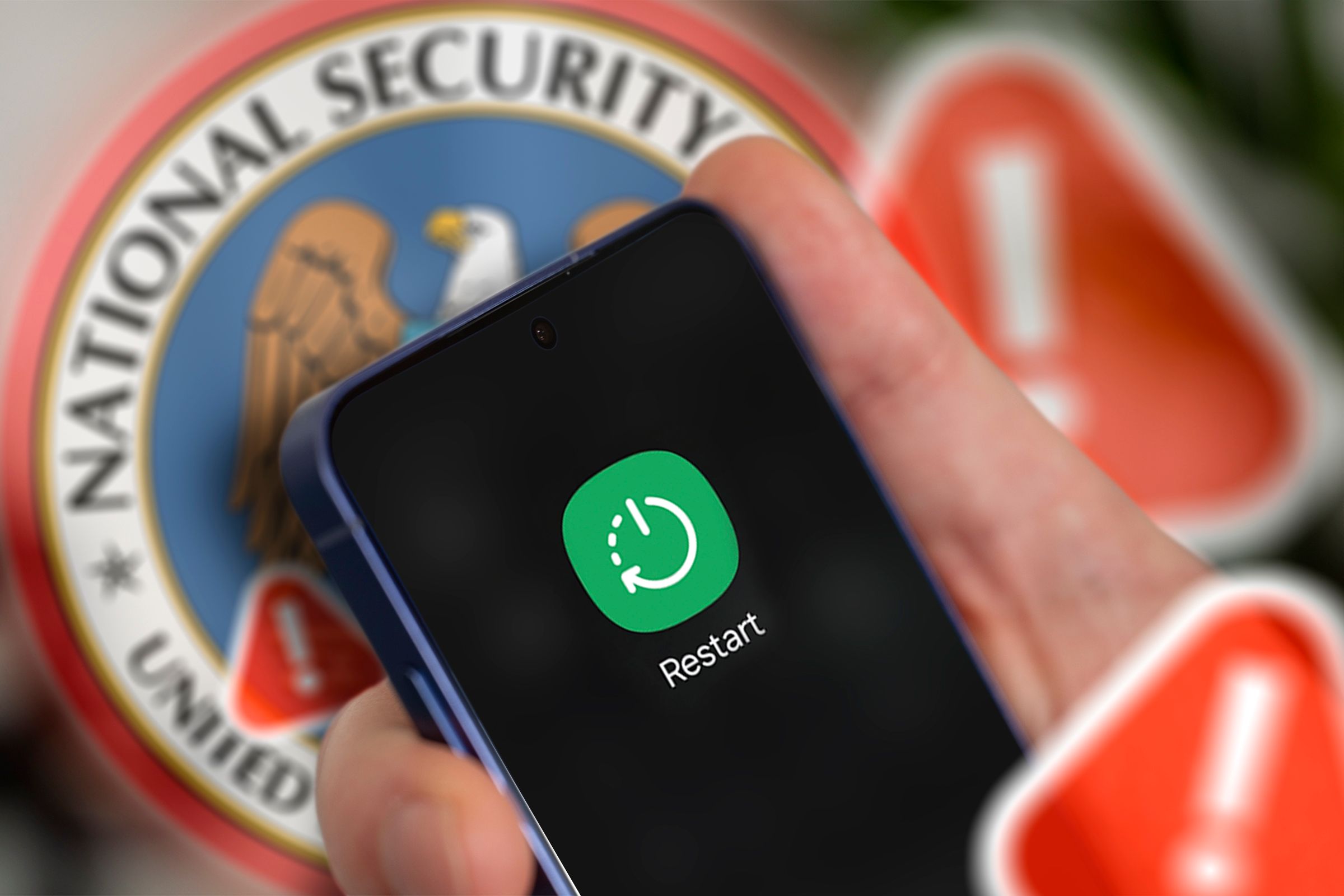
Understanding the NSA's Advice on Regular Smartphone Resets and Their Critical Importance for Your Digital Safety

Understanding the NSA’s Advice on Regular Smartphone Resets and Their Critical Importance for Your Digital Safety
Key Takeaways
- The National Security Administration (NSA) is asking you to reboot your phone once a week to remove potential malicious code.
- Rebooting helps stop malicious code from executing and clears temporary files.
- You should also follow mobile security best practices to prevent cyberattacks and reduce potential damage.
Outside the occasional software update, you probably don’t reboot your phone very often unless you regularly run out of battery. Here’s why the National Security Agency (the NSA, which is responsible for protecting the US’ communications and cybersecurity) says you should make a habit out of it.
What Did The NSA Say, And Should You Be Worried?
In short, the NSA is asking you to reboot your mobile devices once a week. iPhone and Android phones (and iPads/tablets) should be regularly rebooted to wipe any malicious code that may have made its way onto the system.
This announcement shouldn’t be a cause for concern: no new specific threat has been identified, but fully rebooting your devices by turning them off and back on is part of good digital hygiene, and one of the 13 mobile device best practices being promoted by the NSA to help protect you from phishing, malicious apps, and other attacks.
Other mobile security best practices the NSA are suggesting you follow include:
- Keeping your apps and software up to date to protect against known exploits.
- Only installing apps from official App stores to protect against malicious apps.
- Avoiding connecting to public Wi-Fi networks (like in hotels) that could intercept your data.
- Not clicking links or opening attachments in emails to prevent viruses.
- Keeping your devices locked with biometrics, PINs and passwords to prevent a lost device being used to get access to your accounts.
How Restarting Your Android and iOS Devices Regularly Improves Security
Modern mobile operating systems include measures that protect the core system from being modified by malicious code. However, this doesn’t stop malicious code from actually being executed, either by user action (opening a virus-infected email attachment, for example), or without it (in the case of zero-click attacks ). Restarting your device means that any malicious code that is potentially running is stopped, and as it (hopefully) wasn’t able to modify the operating system on your device, it will not start again when the device boots.
Malware that records or interferes with your activity can also be stored in temporary files, which are usually cleared during a reboot. Your device’s performance may also be improved by regularly turning it off and on again, as buggy applications that may be using increasing amounts of memory will be forced to release those resources and restart.
Staying Secure In An Increasingly Threatening Mobile World
We all rely on our mobile devices in our day-to-day lives, so giving them up is out of the question. So how do you stop worrying and learn to love our connected present and future? The best you can do is follow best practices , and stay vigilant at home, at work, and even on holiday . Most attacks and scams happen because of user negligence, not due to sophisticated technical attacks like the ones in spy movies (unless you happen to be a spy).
If you do fall victim to a cybersecurity attack (and, realistically, most of us will at some stage, through our own fault or not), you can at least take comfort that you did your best to avoid it, and maybe even lessen the damage done.
Also read:
- [New] 2024 Approved Dive Deep Accessing Facebook's Story Vault
- [New] In 2024, Troubleshooting OBS Full Screen Malfunction
- [Updated] 2024 Approved Leading Free Tech to Share PC Screens Seamlessly
- [Updated] In 2024, Virtual Universes Clash Metaverse V/S Multiverse
- 2024 Approved Swift Strategies to Silence Social Media Videos
- Blur Photos Fast on iPhone - Simple Steps for Selective Image Privacy
- Does Airplane Mode Turn off GPS Location On Huawei Nova Y71? | Dr.fone
- Enhance Corporate Mobility: Manage Devices Seamlessly Using Verizon Wireless MDM Technology
- Exploring the Technological Splendor M1 Pro Vs. M1 Max
- Free iOS Device Superuser Access: Create Passwords & Usernames on the Go!
- In-Depth Assessment: Discovering the Pinnacle of Premium Smartphones with the Samsung Galaxy S10
- Preventing HEIC Photos in Airdrop: Tips for Converting Images on iOS and macOS Devices
- Quick & Effective Techniques: Projecting iPhone Visuals on Mac Without Hassle
- Quick and Straightforward Techniques for Mirroring Your iPad Display Onto a PC, Mac or Television
- Secure Instant Download for Validity Fingerprint Sensor Driver – Get Started in No Time
- Ultimate Guide: Charging Your iPhone Wirelessly - No Cable Needed!
- Title: Understanding the NSA's Advice on Regular Smartphone Resets and Their Critical Importance for Your Digital Safety
- Author: Daniel
- Created at : 2024-10-08 20:58:05
- Updated at : 2024-10-11 16:06:06
- Link: https://os-tips.techidaily.com/understanding-the-nsas-advice-on-regular-smartphone-resets-and-their-critical-importance-for-your-digital-safety/
- License: This work is licensed under CC BY-NC-SA 4.0.